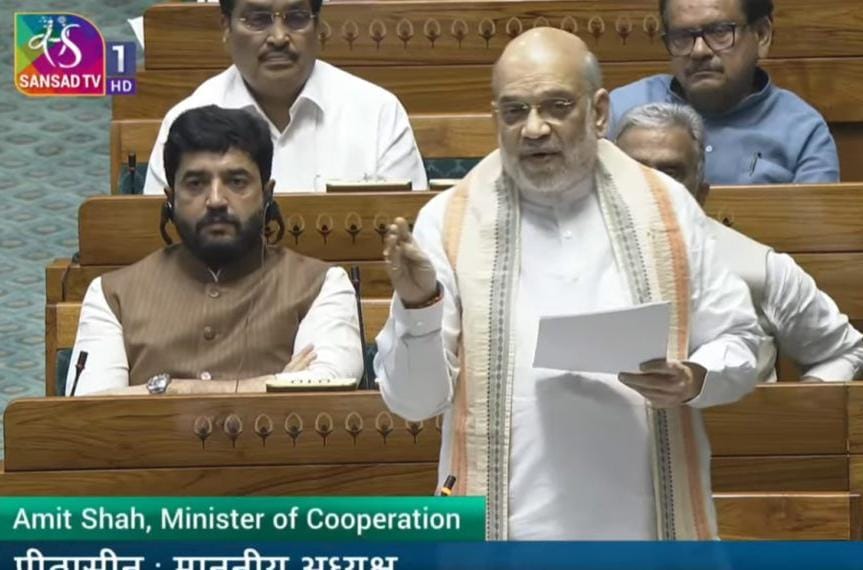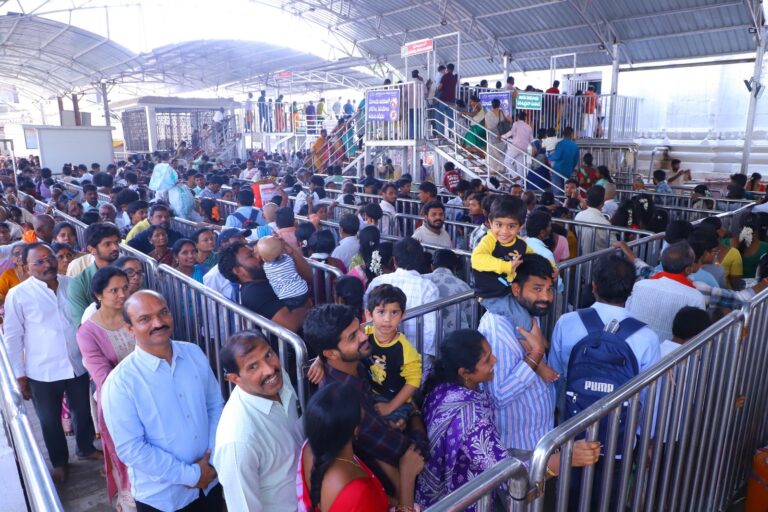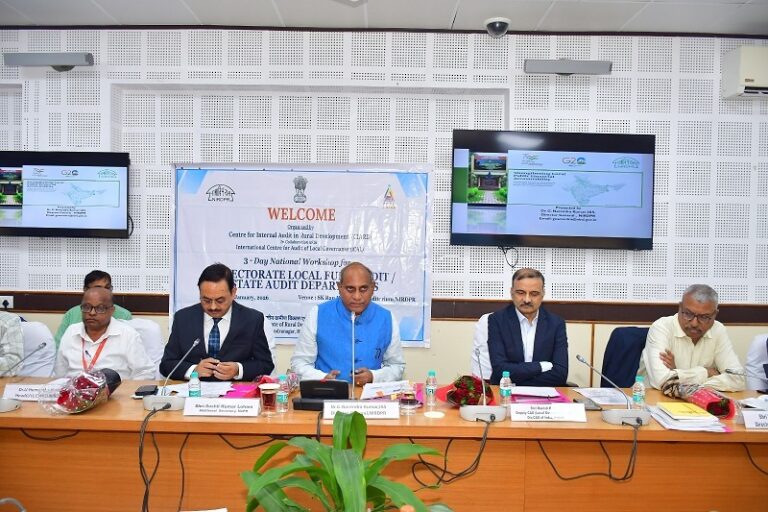
Ministry of Cooperation, Government of India Driving Inclusive Tax Benefits for Growth
Authored Article by Dr.S.L.N.T.Srinivas

Expert in Cooperative Governance & Management
Member, All India Authors Group
Ministry of Cooperation, Govt. of India
KARIMNAGAR, AUGUST 13, 2025: The Lok Sabha’s passage of the Income Tax Bill, 2025, marks one of the most comprehensive transformations of India’s direct tax laws in over sixty years. While the reform spans the entire economy, the Ministry of Cooperation (MOC), Government of India, has ensured that the cooperative sector—especially manufacturing cooperatives and cooperative banks—emerges as a major beneficiary.
Union Finance Minister Nirmala Sitharaman introduced the Income Tax (No. 2) Bill, 2025 in the Lower House on August 11, replacing the Income Tax Act, 1961. The new legislation streamlines the tax structure dramatically—reducing 47 chapters to 23 and 819 sections to 536—while introducing a digital-first, faceless compliance system that prioritises ease of doing business and transparency.
For the cooperative sector, several clauses have been crafted with precision to support expansion, competitiveness, and modernisation.
Key Provisions for Cooperatives
- Clause 204 – Incentivised Tax Rate for Manufacturing Cooperatives
- New manufacturing cooperative societies can opt for a 15% tax rate on manufacturing income, subject to specified conditions.
- Non-manufacturing income is taxed at 22%, short-term capital gains from non-depreciable assets at 22%, and certain deemed incomes at 30%.
- This optional regime is expected to attract new cooperatives into manufacturing, opening doors for diversification beyond agriculture and allied sectors.
- Clause 203 – Concessional Tax Rate for Other Cooperatives
- Offers a flat concessional rate for cooperatives not covered under Clause 204, provided they forgo certain deductions.
- Simplifies compliance while lowering the effective tax burden.
- Clause 149 – Preservation of Deductions
- Retains deductions for specified categories of cooperative income.
- Allows societies to continue availing benefits on eligible streams, ensuring no disruption to ongoing operations.
- Clauses 118 & 64 – Benefits During Business Reorganisation
- Clause 118: Allows carry forward and set-off of accumulated losses and unabsorbed depreciation in cases like amalgamations or demergers.
- Clause 64: Ensures deductions are computed proportionately between predecessor and successor entities during reorganisation.
Impact on the Cooperative Sector
Legal and tax experts believe these targeted reforms will lower the effective tax rate, protect existing benefits, and strengthen the financial resilience of cooperatives. For manufacturing cooperatives, the 15% rate mirrors incentives given to private manufacturing firms, ensuring a level playing field and encouraging sectoral expansion.
For cooperative banks, the provisions safeguard tax continuity during restructuring—critical for mergers that aim to enhance scale, operational efficiency, and reach in rural credit markets.
Ministry of Cooperation’s Role
The MOC, GOI has consistently championed the cause of cooperatives as engines of inclusive growth. Its interventions ensured that the Income Tax Bill 2025 reflects:
- Parity with other economic players in concessional regimes.
- Protection of sector-specific deductions to maintain operational viability.
- Simplified compliance norms to suit the grassroots nature of cooperative operations.
These measures align seamlessly with the Government’s vision of “Sahkar Se Samriddhi”—leveraging cooperative enterprise for national prosperity.
A New Era for Cooperative Taxation
The passage of the Income Tax Bill 2025 signals a strategic shift in how India views and nurtures its cooperative movement. By offering globally competitive tax rates, preserving legacy benefits, and ensuring ease of compliance, the government has paved the way for:
- Expansion into manufacturing and value-added sectors.
- Greater competitiveness in domestic and export markets.
- Sustainable restructuring of cooperative banking to serve rural India better.
With the MOC at the forefront, the cooperative sector now stands poised to deepen its contribution to GDP, diversify income streams, and reinforce its position as a pillar of inclusive economic growth in the coming decade.




